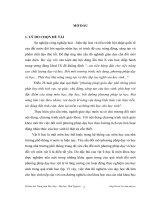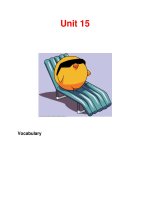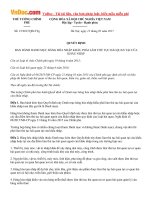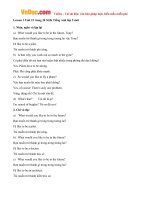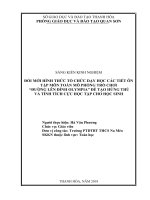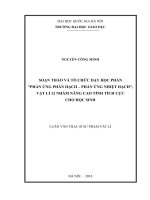Unit 15 vocabulary grammar
Bạn đang xem bản rút gọn của tài liệu. Xem và tải ngay bản đầy đủ của tài liệu tại đây (142.14 KB, 2 trang )
<span class='text_page_counter'>(1)</span><div class='page_container' data-page=1>
<b>UNIT 15: </b>
<b>SPACE CONQUEST</b>
<b>VOCABULARY: </b>
<b>Fill in the blanks: success, historic, weightless, achievement, tragic, approximately, tension, </b>
<i><b>failures, crash, cosmonaut, space, lifted off</b></i>
1. Our recent _____ in medicine is the development of laser in treating cancer.
2. Before Gagarin’s _____ flight, there were still enormous uncertainties
3. Although his flight lasted only 108 minutes, its _____ made him a national hero.
4. Yuri Gagarin is a Soviet _________.
5. _____ 60,000 people filled the stadium.
6. Laughter can be a great release of _____.
7. If there were a technical _____, he might be fired.
8. On 12th<sub> April, 1961, Gagarin __________ into space aboard the Vostok 1.</sub>
9. He died in a plane ______ on a routine training flight in March 1968.
10. Astronauts work in ______ conditions.
11. Many spacemen could never get back to the Earth because of _____ accidents
12. ____ is the empty area outside the Earth's atmosphere, where the planets and the stars are.
<b>GRAMMAR:</b>
<b>1) COULD, WAS/WERE ABLE TO (coù thể, có khả năng)</b>
<b> 1.1. Could: được dùng để chỉ khả năng nói chung hoặc được phép làm điều gì trong _________</b>
<i>Ex: My grandfather was very clever. He ________ speak five languages.</i>
<b> 1.2. Was/were able to: bên cạnh chỉ khả năng COULD, còn được được dùng để chỉ khả năng xảy ra</b>
ở một tình huống cụ thể trong ________.
<i>Ex: A girl fell into the river, but luckily we were able to rescue her.</i>
*CHÚ Ý: đối với câu phủ định, có thể dùng COULD NOT hoặc WAS/WERE NOT ABLE TO.
<i>Ex: My father couldn’t swim. (=My father wasn’t able to swim.)</i>
TÓM TẮT: <b>COULD </b> <b> WAS/WERE ABLE TO</b>
<b> </b> <b> Khả năng nói chung </b> <b>Khả năng cụ theå</b>
<b>Underline the correct or more natural answer. Ifboth answers are possible, underline them both.</b>
1. Valuables <i>can / are able to </i>be left in the hotel safe. Please ask at the reception desk.
2. We <i>could / were able to </i>finish the football match before it started snowing too heavy.
3. The rebels <i>could / were able to </i>draw on the support of over 20,000 soldiers.
4. <i>Could you / Were you able to </i>understand Professor Larsen's lecture? I found it really difficult.
5. 'Do you want a game?' 'Sorry, I <i>can't / </i>'m <i>not able to </i>play chess.
6. Look at me, I <i>can </i>/ 'm <i>able to </i>ride my bike without any help.
7. When the fire officers arrived they <i>could </i>/ <i>were able to </i>put out the flames in a couple of minutes.
8. The air was so polluted in the city center, I <i>could hardly </i>/ <i>was hardly able to </i>breathe.
9. I knew John had been smoking. I <i>could / was able to </i>smell the cigarettes when I came into the room.
10. <i>Can you </i>/ <i>Are you able to </i>drive without your glasses?
11. No changes <i>can / are able to </i>be made to this rail ticket after purchase.
12. He <i>could </i>/ <i>was able to </i>untie the ropes without the guards noticing.
13. She looked all over the house, but <i>couldn't </i>/ <i>wasn't able to </i>find her keys anywhere.
14. I was very busy at work; but I <i>could / was able to </i>have a couple of days off last week.
</div>
<span class='text_page_counter'>(2)</span><div class='page_container' data-page=2>
<b>2) TAG QUESTIONS (câu hỏi đuôi): </b> THE STATEMENT (A), TAG ENDING (B)?
Nếu A là câu Khẳng Định, B sẽ là câu _________, và ngược lại nếu A là câu Phủ Định,
thì B sẽ là câu __________: <i>She’s gone, hasn’t she? --- She hasn’t gone, has she?</i>
<i>Ex1: You are a student, _______________ ?</i>
<i>Ex2: The film wasn’t very interesting, ________________?</i>
<i>Ex3: Mary does a lot of homework every day, ____________________?</i>
<i>Ex4: John didn’t go to school yesterday, ____________________?</i>
<i>Ex5: We have seen this film twice, ____________________?</i>
<i>Ex5: They can swim very fast, ____________________?</i>
<b>Reminder: </b><i>Am I not? </i>is formal; <i>Aren’t I?</i> is informal
<i>Ex6: I am a student, am I not ? </i> <i>=</i> <i>I am a student, aren’t I ? </i>
<b>Add question tags to the following statements</b>
1.- You’ve never been in Hawaii, __________________?
2.- She’s not going to have to take another course, ___________?
3.- She shouldn’t smoke, _____________________________?
4.- He’s had many different kinds of jobs, _______________?
5.- He’s an engineer for a government agency, _____________?
6.- Bob and Mary have to go home now, ____________________?
7.- Bill and Henry have gone, ________________________?
8.- She’s recently been ill, ________________________?
9.- There’s something cooking on the stove, ___________?
10.- You had a good time at the game, ________________?
11.- It’ll be cold tomorrow, ____________________?
13.- He’s never on time to work, __________________?
14.- There were a lot of people at the concert, _________?
15.- I’m going to be with you tomorrow night, __________?
16.- Mary had to cook dinner, ________________________?
17.- John has had several operations this year, _____________?
18.- We’ve studied a lot of things so far, ______________?
19.- You weren’t at the last meeting, ___________________?
20.- They’ve never had a child, ________________________?
22.- You can type well, _____________________?
23.- I’m not pronouncing your name correctly, _______________?
24.- She hasn’t been enjoying herself lately, ____________?
25.- He hurt himself in the accident, ____________________?
26.- It never works very well, ________?
27. Neither of them offered to help you, ________?
28. Let's go out for dinner tonight, ________?
29. That isn't Bill driving, ________?
30. Nothing went wrong, ________?
31. Not a very good film, _________?
32. They think he's funny, ___________?
33. Do it right now, ______?
34. He seldom goes to the library, ______?
</div>
<!--links-->
